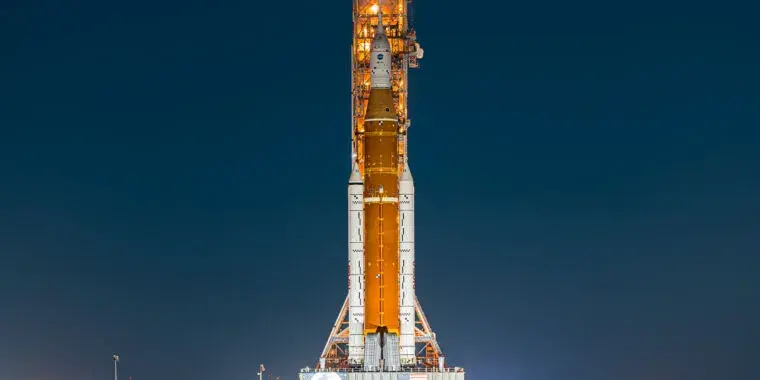It will be interesting how Starship works out. Till now Spacex has been highly successful doing what has been done before but with new twists mostly reusability and without the defense providers pork. Also with vision vs. status quo.
It is all cost per pound to orbit, moon, Mars, act. SLS is not it. Starship who knows yet. Amazes me how people do not want to try something new but are willimg to spend way more money on SLS.
I am baffled by the SLS supporters. Where do people think the nutty costs go. Lot of it into overpaid executives and stock holders. I guess the one plus is that it pumps more money in to key political districts and keeps things status quo.
Keep in mind too… I do not think Musk is a huge humanitarian. Nor are the owners and execs of the defense contractors that NASA usually uses.
This whole discussion about hydrogen is interesting, because my industry (oil but not really and shipping but not really; it’s complicated) MUST replace fuel oil in the very near future, and we have no fucking idea what to do about it. It’s mostly the IMO (the only UN agency wired real teeth) driving this, but there are some local actions, especially in the EU affecting it now too.
No one and I mean no one has built out a non-fossil fuel based infrastructure for the ships that transport 90% of everything we consume on the planet. Right now, larger container ships seems to be moving to LNG, but some others are betting on bio methane, and some battery tech (good luck with that on anything bigger than a small ferry). And a bunch of other replacement fuels + incremental fuel savings + short tern carbon capture.
It is absoluteluy no exaggeration to say that hundreds of billions of dollars, maybe more, over the next ten years at stake, so if you want to know what’s eventually going to have the energy density to fuel rockets, look at the developments in the shipping industry. Cause ships need nearly as much of it as rockets do, just over a much longer time frame.
deleted by creator
It doesn’t have potential. It’s possible, but not practical. Using hydrogen for transport is snake oil - there are plenty of other industrial uses that should have much higher priority.
In order to meet the global industrial demand with green hydrogen, we would need to dedicate 3x the global renewable generation capacity from 2019 entirely to hydrogen production. That simply isn’t going to happen - and that’s just trying to deal with demand where there are no other options but hydrogen. If you start adding transport the demand will sky rocket. This is great for those in the business of selling hydrogen, terrible for everyone else.
Hydrogen is also an incredibly inefficient fuel, both in terms of burning it and in terms of energy cost to produce.
Methane is also not exclusively extracted through fracking. You’re minimising the negatives of hydrogen and sensationalising the competition.
The other advantage of SLS is that these rockets are owned by the people, not private companies.
Yes because Boeing are totally a company for the people, they never take advantage of government contracts and always stay within budget.
Say what you will about SpaceX and the issues with the private sector and publicly traded businesses, SpaceX have revolutionised the rocket industry and driven costs down.
deleted by creator
You’re not being honest if you argue from the assumption that the green Hydrogen for space flight is coming from Earth.
Remind me again, where is SLS taking off from? Who’s the one not being honest in their argument here?
Go suck Elon’s dick elsewhere.
Wow. You’re not worth speaking to.
deleted by creator
Thank you for writing this response. My general thoughts on hydrogen for rocketry have been that it doesn’t seem worth the trouble (temps, leaks, storage, etc), but I hadn’t considered the environmental or future angles. I’m not convinced that it’s the right choice now, but thanks for giving me something to think about.
Not going to lie, I found your back and forth interesting (and mostly sided with the other person), but the argument was lost for me when they attacked you directly.
You are right, SpaceX brought down costs (in dollars) to move mass into space which has opened many new doors. We can argue and disagree about what the broader and long term costs and outcomes of that change might be, but I didn’t get the feeling you were being a fanboy or unreasonably lavish in your praise.
Kudos for walking away from the conversation.
The other person was just wrong.
Large scale Hydrogen generation isn’t generated in a fossil free way, Hydrogen can be generated is a green way but the infrastructure isn’t there to support SLS.
Hydrogen is high ISP (miles per gallon) by rubbish thrust (engine torque).
This means SLS only works with Solid Rocket Boosters, these are highly toxic and release green house contributing material into the upper atmosphere. I suspect you would find Falcon 9/Starship are less polluting as a result.
Lastly the person implies SLS could be fueled by space sources (e.g. the moon).
SLS is a 2.5 stage rocket, the boosters are ditched in Earths Atmosphere and the first stage ditched at the edge of space. The current second stage doesn’t quite make low earth orbit.
So someone would have to mine materials on the moon and ship them back. This would be far more expensive than producing hydrogen on Earth.
Hydrogen on the moon makes sense if your in lunar orbit, not from Earth.
Fuck SpaceX propaganda.
You cannot argue with the numbers
The numbers are bullshit. All money spent on NASA goes back to the economy. And it’s all public domain technology. Fascists would love to replace that will privately controlled technology.
the federal department charged with analyzing how efficiently US taxpayer dollars are spent,
lmao. what a joke.
Why?
The GAO has performed an annual review of the Space Launch System every year since 2014 and switched to reviewing the Artemis program in 2019.
Each year the GAO points out Nasa isn’t tracking any costs and Nasa argues with the GAO about the costs they assign. Then the GAO points out Nasa has no concrete plan to reduce costs, Nasa then goes nu’uh (see the articles cost reduction “objectives”).
The last two reports have focused on the RS-25 engine, last time the GAO was unhappy because an engine cost Nasa $100 million and Nasa had just granted a development contract to reduce the cost of the engine.
However if you took the headline cost of the contract and split it over planned engines it was greater than the desired cost savings. Nasa response was development costs don’t count.
Congress reviews GAO reports and decides to give SLS more money.






